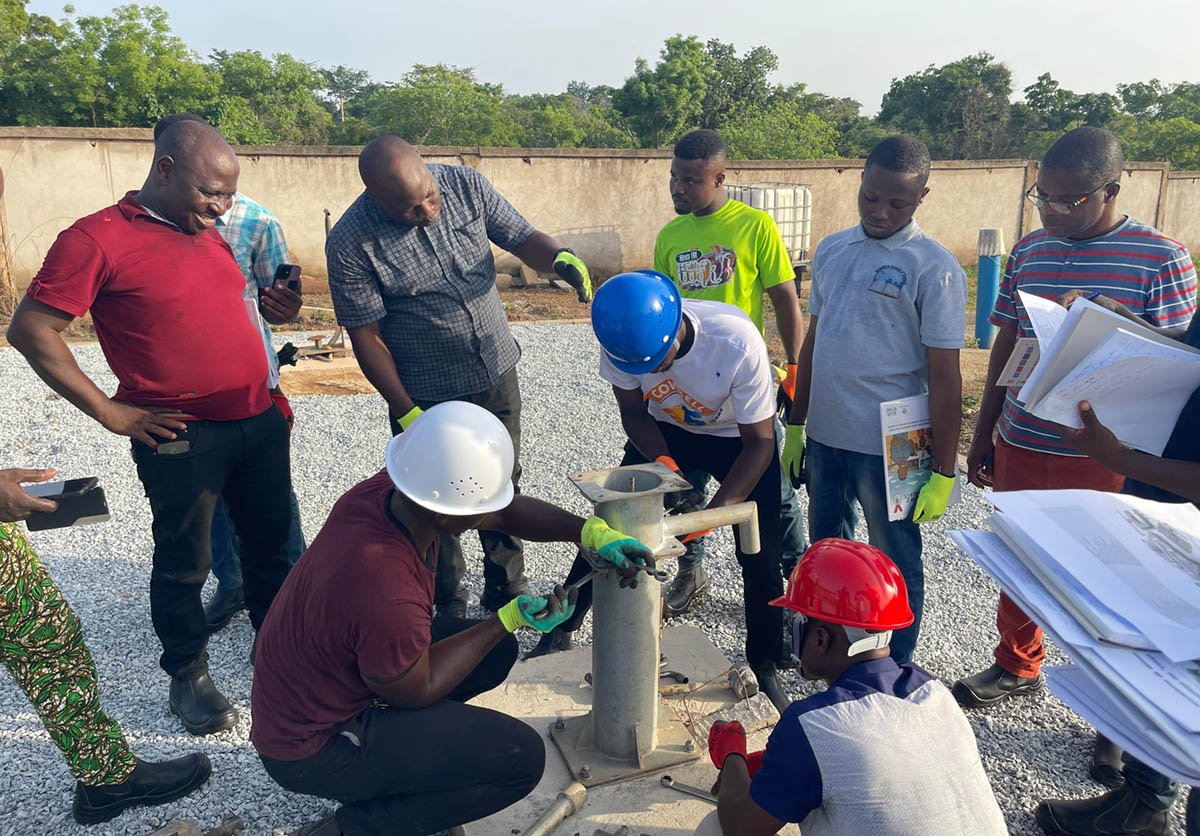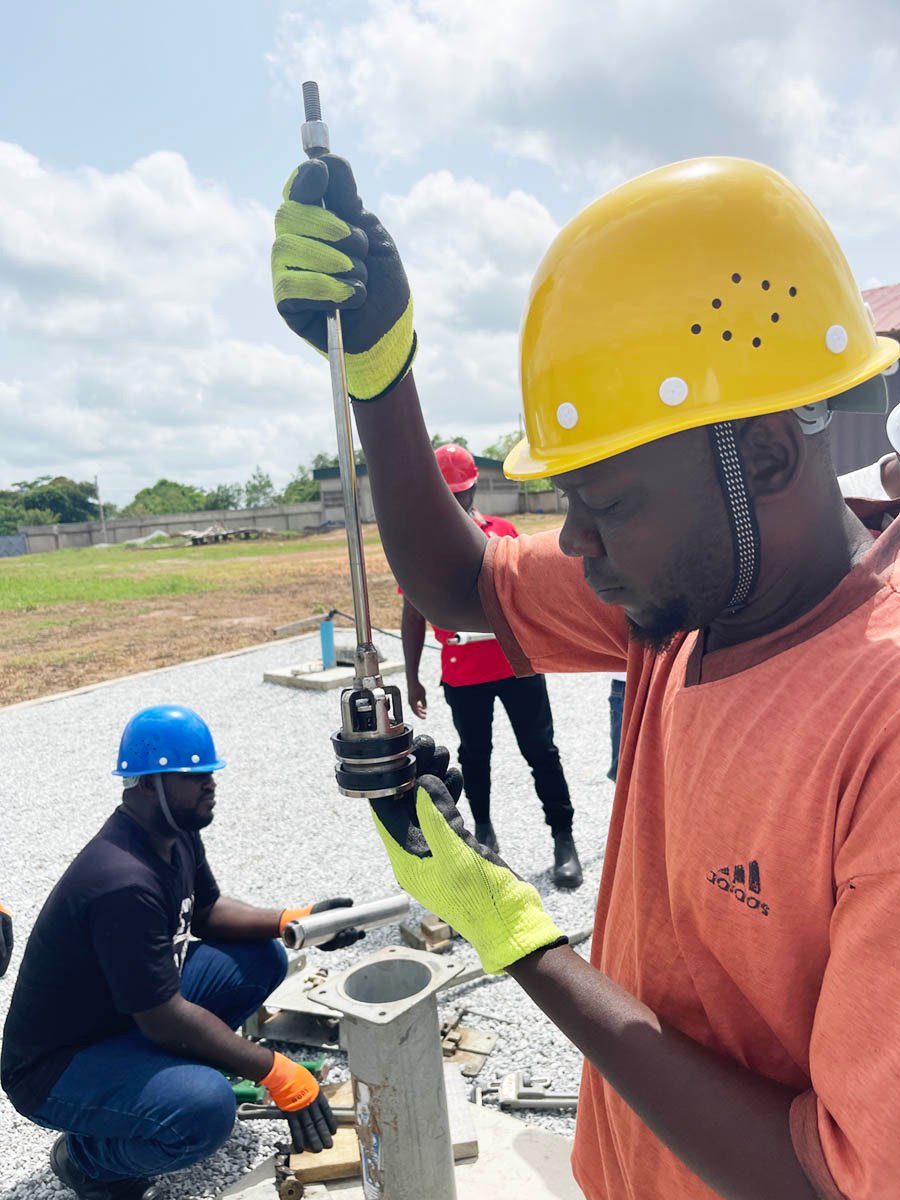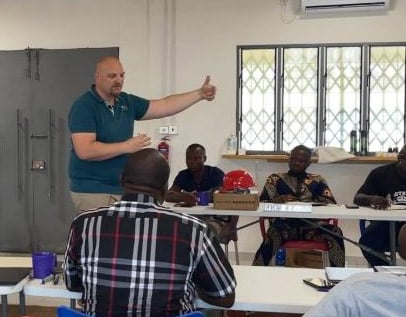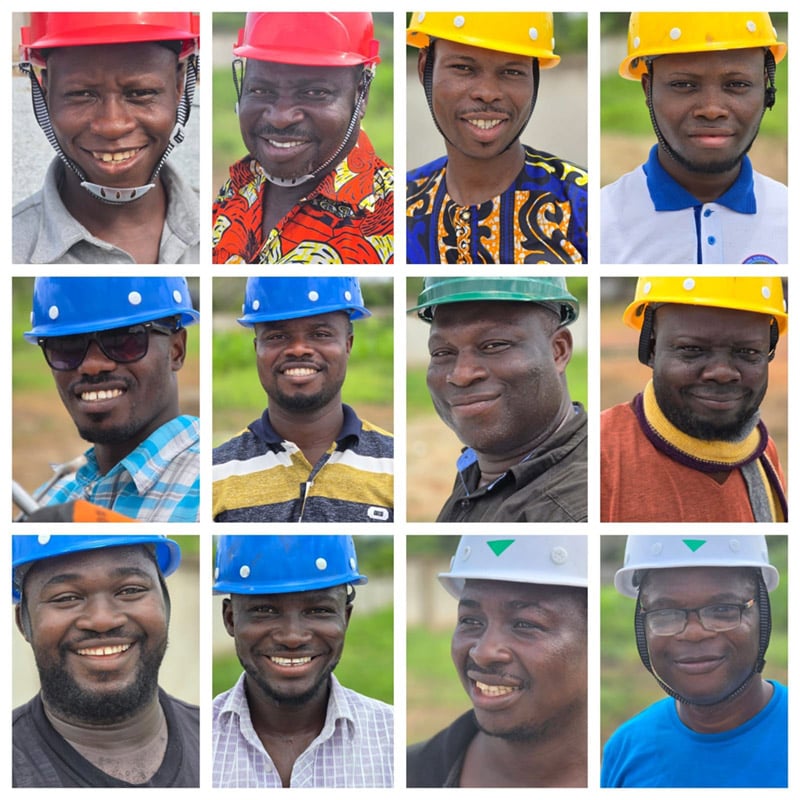
USING BROKEN WELLS TO DEMONSTRATE REDEMPTION IN WEST AFRICA!
In Sub-Saharan Africa, an estimated 319 million people do not have access to safe, drinkable water. Communities across the continent face risks of water-borne diseases, including cholera, typhoid fever, and diarrhea. That lack of clean water also perpetuates their cycle of poverty.
For decades, governments, non-profits, and many ministries have been installing wells in villages all throughout the region. A politician or an organization will come into a community, build a well, take some video or pictures, and then leave. Scenes like these are repeated over and over.
“We love the pictures of the big drilling rig and people dancing in the rain,” says Wim, Community Development Coordinator for Sub-Saharan Africa. “But that’s not the reality. Two-thirds of those wells are now broken or no longer functioning—sometimes after only a few months.” For villagers living in those communities, their newfound joy quickly turns into despair.
Wim and his team noticed another troubling trend across the region—instead of fixing broken wells, people were just drilling new ones. This seemed like poor stewardship.
 “The wells are broken, yes, but not beyond repair,” says Wim. “The real issue is that no one has taken responsibility to fix them. That’s where we saw the opportunity.”
“The wells are broken, yes, but not beyond repair,” says Wim. “The real issue is that no one has taken responsibility to fix them. That’s where we saw the opportunity.”
TOOLS FOR CHANGE
Wim realized that simply gifting a well or pump wasn’t enough. “Without spare parts, proper tools, and the know-how to maintain them, wells will fail. We see dry pumps everywhere we go.” It took three years to build a sustainable network of equipment and spare parts, and more importantly, skills.
In 2024, God connected Wim with a ministry called Friends in Action, which has drilled over a thousand wells in the region. It was the beginning of a strategic ministry partnership.
“I believe Reach Beyond is uniquely skilled in training effectively,” says Wim. “We train, mentor, and deploy. We also work on fostering collaboration among our partners. In missions, we often see that there’s not much collaboration; everyone tends to work alone, doing their own thing.”
This May, Reach Beyond hosted and co-taught a five-day training event with Friends in Action at their newly completed well installation and repair training center in Ivory Coast. The trainees were from four of Reach Beyond’s local partner ministries that are using clean water and community development as part of their church-planting efforts.
Wim says, “Our West African partners—pastors, mission organizations, and local leaders—already know their communities inside and out. We aren’t here to dictate from afar, tell them how to reach their people, they know it and do it, we can come alongside, share practical skills, and add valuable tools to their toolbox.”
 Participants were taught many skills, but training primarily focused on assessing a well, installing and repairing pumps, and then mastering the skills needed to maintain and keep wells functioning. The intensive training was packed with hands-on sessions where participants learned to dismantle, repair, and reassemble pumps.
Participants were taught many skills, but training primarily focused on assessing a well, installing and repairing pumps, and then mastering the skills needed to maintain and keep wells functioning. The intensive training was packed with hands-on sessions where participants learned to dismantle, repair, and reassemble pumps.
They also learned how to test wells. The trainers emphasized that the difference between a grandstanding well and an excellent one is the rigorous testing of the well’s water flow. And by the end of the week, teams of participants were going out into communities to test wells and install and repair handpumps on their own!
A SPIRITUAL TOOLBOX
Providing clean water and health and hygiene training to communities opens the doors to share Jesus, even in places that have been resistant to the Gospel.
Wim says some of these pastors have faced daily, even violent persecution, but are now able to enter villages and homes. One pastor shared how carrying this simple toolkit can turn a would-be visitor into a welcomed friend.
Restoring a well serves a practical purpose, but it also illustrates how broken things can be made new—that we are never beyond redemption through Christ’s love.
 “The Gospel is about restoration,” says Wim, “not starting fresh with something brand new. Development should reflect that too. But restoration means changing behavior, and that’s the hardest part—whether in faith or in fieldwork. If we don’t change the patterns, the outcome won’t change either.”
“The Gospel is about restoration,” says Wim, “not starting fresh with something brand new. Development should reflect that too. But restoration means changing behavior, and that’s the hardest part—whether in faith or in fieldwork. If we don’t change the patterns, the outcome won’t change either.”
A REASON TO REJOICE
Our local partners in West Africa are now rejoicing because they have been given the skills and tools to fix broken wells at a fraction of the cost to drill new ones, dramatically expanding their potential ministry impact.
“The training was about engaging with what’s broken,” says Wim, “the messy stuff most people overlook. Without this training, no one would touch a broken hand pump. Now, across four countries, our partners are actively looking for broken ones—eager to step in and bring solutions, because they know that doing so will open new doors for them to share the Gospel.” •
| Help support this ministry! |
